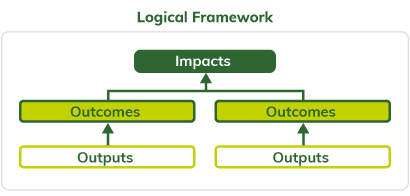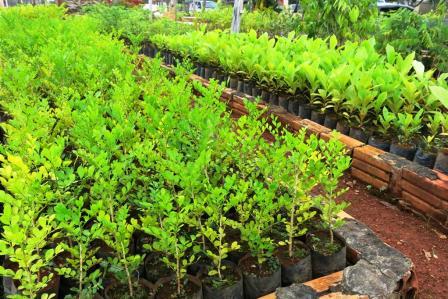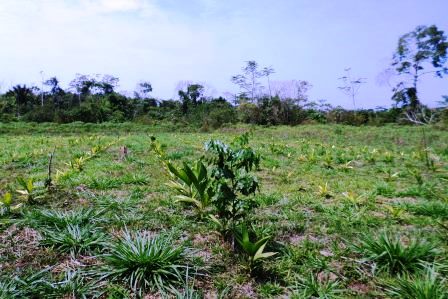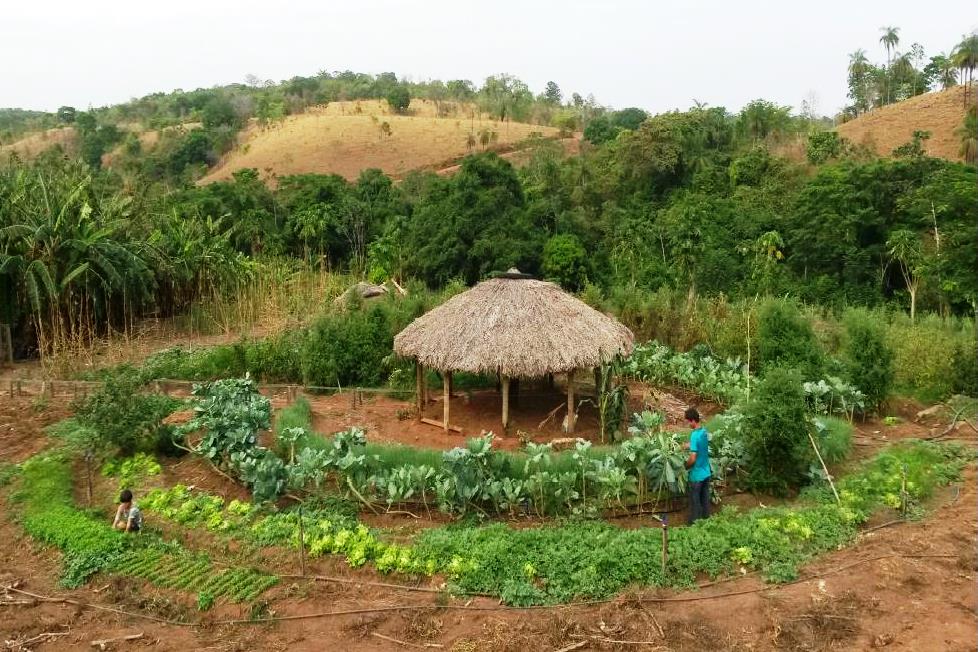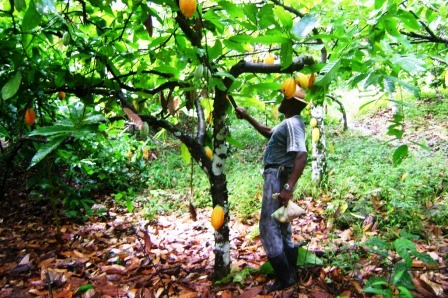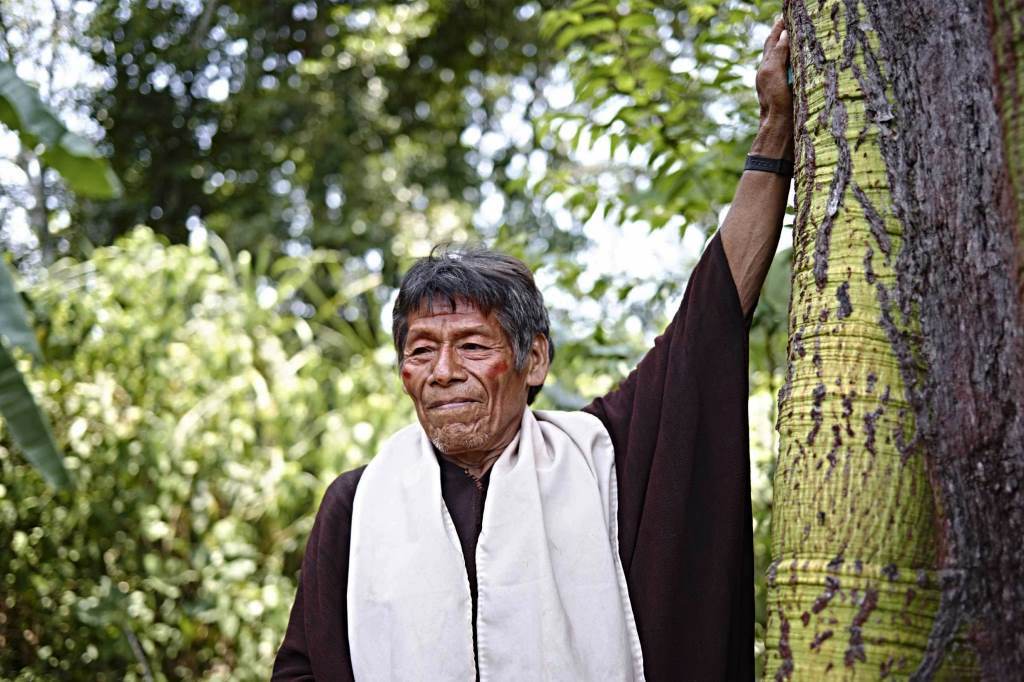INSTITUTIONAL AND ADMINISTRATIVE ASPECTS
Throughout IFT’s 20 years, it has contributed to the implementation of good forest management practices in the Amazon region. This experience is reflected in the federal and state regulations regarding forest management in Brazil’s tropical forests. In 2014 the institute participated in a working group that discussed and drafted the regulatory instruction that governs forest management in the Brazilian state of Pará. The regulations include a forestal calendar for the state, which established periods when forest exploitation activities are permitted or banned. IFT also participated in developing the Política Estadual de Manejo Florestal Comunitário e Familiar do Pará (Pará State Policy for Family and Community Forest Management) with the Instituto de Desenvolvimento Florestal e da Biodiversidade do Estado do Pará – IDEFLOR (Pará Institute for Forest and Biodiversity Development) and other governmental and non-governmental partners, besides having a representative on the environmental chamber of the Forest Stewardship Council (FSC – Brazil) for the 2014-2015 biennium.
In October of 2014, IFT signed a reciprocity agreement with the Chico Mendes Biodiversity Conservation Institute (ICMBIO), a Federal Government body linked to the Brazilian Ministry of the Environment, which authorized several actions performed by IFT with a view to create sustainable use protected areas in the Amazon region.
In order to accomplish the capabilities supported by the project, the timber company Cikel Brasil Verde Madeiras Ltda. gave to IFT, at no charge, the Roberto Bauch Training Center (TC), located in a farm known as Cauaxi, and also the Rio Capim farm, where some practical activities took place. The partnership with Cikel had existed since IFT’s foundation, which included partnerships with companies such as Caterpillar and Stihlat at that time.
Between 2011 and 2015, during the project’s execution, around 30 technicians and researchers were linked to IFT in order to perform research experiments supported by the project; approximately 47 IFT employees strengthened the regional research network and helped produce and disseminate knowledge and technology regarding the sustainable use of the Amazon biome.
The project ended by the end of 2015, when IFT had reduced its team to 25 employees, 30% of whom were women. From this number, five individuals were coordinators, 40% of them being women.
RESULT AND IMPACT INDICATORS
The project’s activities contributed towards the results of the “sustainable production” (1) and “scientific and technological development” (4) components of the logical framework of the Amazon Fund.
SUSTAINABLE PRODUCTION COMPONENT (1)
Outcome 1.3: Expanded managerial and technical capacity in order to practice sustainable forest
The project’s main action was to provide training regarding sustainable forest management practices, aiming to fight the shortage of skilled labor for these activities. Based on the above, the project’s main indicators were:
- Number of courses held and number of individuals trained (output indicators)
The number of courses held at the Roberto Bauch TC (in situ), regarding forest management, as well as the amount of ex situ courses, focusing on the implementation of forest management in the areas belonging to the community or the contracting companies, exceeded the set targets. 140 courses were held, involving 1,933 individuals, as shown in the next table.
|
Action 1.1 – Courses at the Roberto Bauch TC (in situ)
|
Target
|
Reached
|
Reached/Target (%)
|
|
Courses
|
70
|
72
|
103
|
|
Participants
|
900
|
1,145
|
127
|
|
Action 1.2 – Courses outside the TC (ex situ)
|
Target
|
Reached
|
Reached/Target (%)
|
|
Courses
|
40
|
68
|
170
|
|
Participants
|
400
|
788
|
197
|
Source: BNDES, based on data from IFT
The group of professionals trained at the Roberto Bauch TC and during the practical forest management courses had a diverse number of individuals, involving people connected to education (37% of the group), the community (25%), the timber industry (20%), government (10%), non-governmental organizations (NGOs) (1%) and others (7%). It is worth noting that 20% of the professionals were women.
At the end of each course, the participants completed an evaluation to assess their degree of satisfaction regarding the training received, with satisfaction levels being described as excellent and good for all the evaluated aspects, both in the evaluations for the ex situ and in situ courses.
- Number of awareness-raising events and number of participating individuals (output indicators)
A total of 2,141 individuals participated in 50 events to raise awareness regarding the economic, social and environmental benefits of sustainable forest management compared with conventional exploitation and other land uses. The number of participants exceeded the target, and the profile of those involved in the activity was quite diverse: students (43%), community (40%), timber (4%) entrepreneurs, government (3%), unions (2%) and
others (8%). IFT found that the knowledge of the population regarding the topic had grown over the years, concluding that the action had been effective. The next table details the numbers mentioned above:
|
Action 2.1 – Awareness-raising events
|
Target
|
Reached
|
Reached/Target (%)
|
|
Events
|
70
|
50
|
71
|
|
Participants
|
2,100
|
2,141
|
102
|
Source: BNDES, based on data from IFT
- Number of educational or informational publications (output indicator)
Thirteen technical materials were published with the purpose of disseminating the economic, social and ecological benefits of forest management and the results of scientific research in a simplified way, all designed for small producers, communities and families.
- Number of individuals trained using the acquired knowledge (impact indicator)
In July 2015, IFT gave the participants of the project, during in situ and ex situ courses, a survey about the influence of these courses on their effective professional performance. 304 of these 1,933 trained individuals responded to the survey, i.e., 16% of those involved in the project. Among this sample, 88% reported that they were involved in forest management.
While still considering these 304 individuals, 80% responded that the course taught by IFT had been very influential regarding their activities in forest management. Therefore, despite being a limited sample, there is evidence that those trained by IFT are using the acquired knowledge in their practical working occupations, which shows that the following outcome was reached – “expanded managerial and technical capacity in order to
practice sustainable forest management” (1.3).
SCIENTIFIC AND TECHNOLOGICAL DEVELOPMENT COMPONENT (4)
Outcome 4.1: Produced and disseminated knowledge and technology geared towards the
- Number of applied research projects conducted (output indicator) and number of technical and scientific publications produced based on the project (impact indicator)
Eighteen applied research experiments were conducted, which made a contribution towards the continuous improvement of knowledge and practices for sustainable forest management. 17 scientific and technical publications, including dissertations, theses, articles and manuals were produced as a result of the research projects, which demonstrate the project’s contribution to the production and dissemination of knowledge related to the sustainable use of the forest. The next table summarizes these results.
|
Action 3.1 – Applied research experiments
|
Target
|
Reached
|
Reached/Target (%)
|
|
Experiments
|
12
|
18
|
150
|
|
Action 3.2 – Technical materials with applied research results
|
Target
|
Reached
|
Reached/Target (%)
|
|
Courses
|
11
|
17
|
155
|
Source: BNDES, based on data from IFT.
The number of times the technical materials were downloaded from the IFT webpage was measured using the Google Analytics tool in order to evaluate the level of knowledge dissemination developed by the project; in the period from 10.1.2014 to 1.20.2016, there were 985 verified downloads.
Considering the number of research experiments performed and the number of technical and scientific publications that resulted from these research projects, in addition to the number of hits these publications received on the IFT website, we can conclude that the project has achieved its outcome “produced and disseminated knowledge and technology geared towards the sustainable use of the Amazon biome” (4.1) and has also contributed to the strengthening of the scientific and technological research network for the region.
LESSONS LEARNED
The first lesson learned by IFT while running the project was the fact that there is currently existing awareness of the theme and that the demand for awareness raising has reduced ever since the sustainable forest management initiatives were still in their early days. On the other hand, there was a growing demand observed for courses in the management field, primarily for the community management public.
From an institutional point of view, the project with the Amazon Fund motivated IFT to improve the institution’s management. IFT hired a management consultancy company which led it to invest in information technology, organizational process optimization and professional training. An internal audit culture was established and resulted in reduced errors, reduced deadlines, secure and accurate information generation and elimination of reworking, which strengthened the institution and facilitated its accountability. Other outstanding items are the reformulation of the chart of accounts, the monitoring of income and expenditures and the
possibility of calculating the unit cost.
SUSTAINABILITY OF RESULTS
Knowledge regarding good practices for tropical forest management is relatively recent when compared to temperate forest management. In Brazil, the greatest advances have occurred over the last three decades, in more than six decades of forest research in the Amazon region, with IFT being a major center for the research and dissemination of these practices.
From a point of view of the sustainability of the results, the trained individuals are potential agents to disseminate the knowledge gained, which contributes to the development of new professionals trained in the techniques of sustainable forest management.
Furthermore, all of the published materials produced under the project are permanent consultation sources, thus they contribute towards disseminating best practices in sustainable forest management. The scientific knowledge generated by the experiments and technical surveys, which were part of the development process for dissertations, theses, articles and scientific newsletters, are available, free of charge, on the IFT website and have been used by students, professionals involved in the private market, researchers, non-governmental institutions, public authorities and others, inside and outside Brazil. Such knowledge will certainly serve as a basis to expand scientific information regarding this subject, thereby becoming part of the development of new studies.
To access the effectiveness evaluation report of the "Dissemination and Improvement of Sustainable Forest Management Techniques" project click here. This assessment was carried out by a team of independent consultants, under the coordination of the Deutsche Gesellschaft für Internationale Zusammenarbeit - GIZ. All opinions expressed are the sole responsibility of the authors, not necessarily reflecting the position of GIZ and BNDES.


